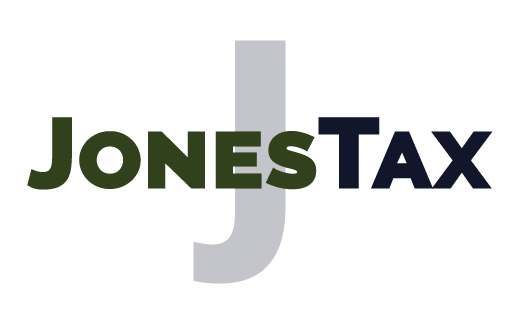We’ve all been affected by the Covid-19 in one way or another regardless of whether we have been infected. Through the Coronavirus Aid, Relief, and Economic Security (CARES) Act and the Families First Coronavirus Response Act (FFCRA), the US government has tried to lessen the impact the virus is having on small businesses. Both stimulus bills provide new tax credits as well as changes to existing tax laws for small businesses to offer immediate relief.
Here are some important tax credits or changes that small businesses who have been impacted by COVID-19 will want to know about.
Employee Retention Tax Credit
The ERTC is designed to help businesses retain their employees and is an important new tax credit to come out of these bills for businesses. Eligible businesses will receive a refundable 50% tax credit on wages, up to $10,000 for each employee, for wages paid or incurred from March 13, 2020 through the end of this year.
To be eligible for the ERTC your business must have been fully or partially suspended due to a COVID-19 shutdown order or gross receipts must have declined by more than 50% compared to the same quarter last year. To claim the credit, employers will need to report total qualified wages and related health insurance costs on their quarterly tax returns (Form 941) starting with the second quarter of 2020.
The employer can take the credit against their share of Social Security tax. Employers also have the option to hold on to employment taxes that would have otherwise been deposited.
Paid Sick & Family Leave Tax Credit
The FFCRA requires businesses with less than 500 employees to provide paid sick leave and paid family leave to employees for Coronavirus related absences. The CARES Act then reimburses those employers by providing a refundable tax credit equal to 100% of the amount paid for paid sick leave and paid family leave.
This tax credit is to be paid every quarter, but in order to assist small businesses who may be experiencing cash flow problems, Treasury is allowing businesses to hold onto the employer portion of payroll taxes and use that to pay for leave. The Treasury will then pay any additional reimbursements owed to the employer at the end of the quarter. Businesses will not face any penalty for failure to deposit payroll taxes if it was done in anticipation of a tax credit.
Delayed Payroll Tax Payments
The CARES Act also allows businesses and the self-employed to delay payroll tax payments. They can defer and pay their Social Security tax and deposits owed for 2020 over the next two years. Fifty percent is due by the end of 2021 and the other 50% is due by the end of 2022.
It is important to note that businesses that have received a Paycheck Protection Program (PPP) loan are generally not eligible to defer these taxes. However, under certain circumstances, businesses are able to participate in the new PPP and take advantage of new provisions that allow for the deferment of payroll taxes. According to the IRS, businesses can take advantage of both programs up until any loans they have are forgiven. At that point deferral would end.
Expansion of the Charitable Gift Deduction
The deduction for charitable cash gifts by corporations was expanded by the CARES Act. The amount they could deduct went from being capped at 10% of a corporation’s taxable income to 25%. Note this change is not automatic and it must be elected.
Changes to Net Operating Loss
Businesses with net operating losses (NOLs) have had some limitations relaxed thanks to the CARES Act. The change will hopefully improve cash flow and liquidity for many pass-through businesses such as sole proprietors and LLCs. Business who experienced an NOL for tax years 2018, 2019, or 2020, can carry back 100% of that NOL for up to five years and NOLs from 2018, 2019, and 2020 may be carried forward up to 20 years. Those carried forward will, however, be subject to the 80% limitation.
Changes to Business Loss Deduction
The CARES Act halted the cap on the deduction for business losses on individual returns that was put in place under the 2017 tax reform law. Under the reform, business losses over $500,000 for couples and $250,000 for individuals were nondeductible, with any excess carried forward. This loss limitation rule has been suspended for 2018 through 2020, which means business owners can file amended returns to receive refunds for losses incurred in 2018 and 2019.
Corporate AMT credits
The 2017 tax reform law also repealed the corporate alternative minimum tax (AMT), but refundable corporate AMT credits became available for several years, ending in 2021. To improve cash flow, businesses that were due to receive AMT credits at the end of next year can claim them for a refund now.
Changes to Interest Deductibility
The CARES Act also allows businesses to increase their business interest expense deductions on their tax returns for 2019 and 2020. The amount went from 30% of adjusted taxable income to 50%.
Write-Off for Facility Improvements
Business and commercial property owners can write off costs associated with improvements to the interior of non-residential buildings. A provision in the CARES Act expands the tax deduction for many property improvements to 100% of the cost. The change fixes some language of the 2017 tax reform law and is effective for 2018 to present. Businesses that may have made facility improvements in 2018 and 2019 could receive a refund if they were to file an amendment to their tax returns.
Things are Still Changing, But We are Here to Help
There have been a lot of changes, more than we’ve mentioned here that could impact your small or medium sized businesses. Which is why it’s important to consult with a tax advisor or financial planner. They can help you figure out exactly how all the coronavirus legislation will impact your business and bottom line this year and next.
Jones Tax is here to help you. If you need any assistance filing your taxes, planning for next year’s taxes, or just navigating these changes and all the other changes, give us a call today to talk to Tyler Jones about your situation and tax concerns. You can reach Tyler at (320) 327-8409 or send us a question online for a no-obligation consultation.
Information contained in this blog is not to be taken as legal, financial, accounting or tax advice.

